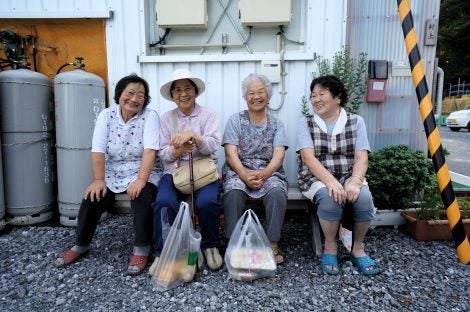Among older adults whose houses were damaged or destroyed after the 2011 earthquake and tsunami in Japan, those who maintained stronger connections with neighbors and friends after the disaster experienced less cognitive decline than those who were more socially isolated, according to a new study led by researchers at Harvard T.H. Chan School of Public Health.
The study was published in the June 2017 issue of The Lancet Planetary Health.
Led by Hiroyuki Hikichi, research fellow in the Department of Social and Behavioral Sciences, the Harvard Chan researchers and colleagues in Japan looked at data on the health status of nearly 3,600 elderly people living near the epicenter of the earthquake. The participants had been surveyed seven months before the disaster as part of an ongoing gerentological study in Japan, and the researchers conducted a follow-up two-and-a-half years later, after many had been relocated to temporary trailer home villages.
The researchers found that informal socializing with neighbors and participation in community events—so-called “social capital”—seemed to buffer the effect of housing damage on cognitive impairment among the elderly study participants. The findings suggest that interventions to promote civic participation could help promote cognitive resilience among older disaster survivors, the authors said.
Other Harvard Chan co-authors of the study included S V Subramanian and senior author Ichiro Kawachi.
Learn more
Elderly may face increased dementia risk after a disaster (Harvard Chan School release)
